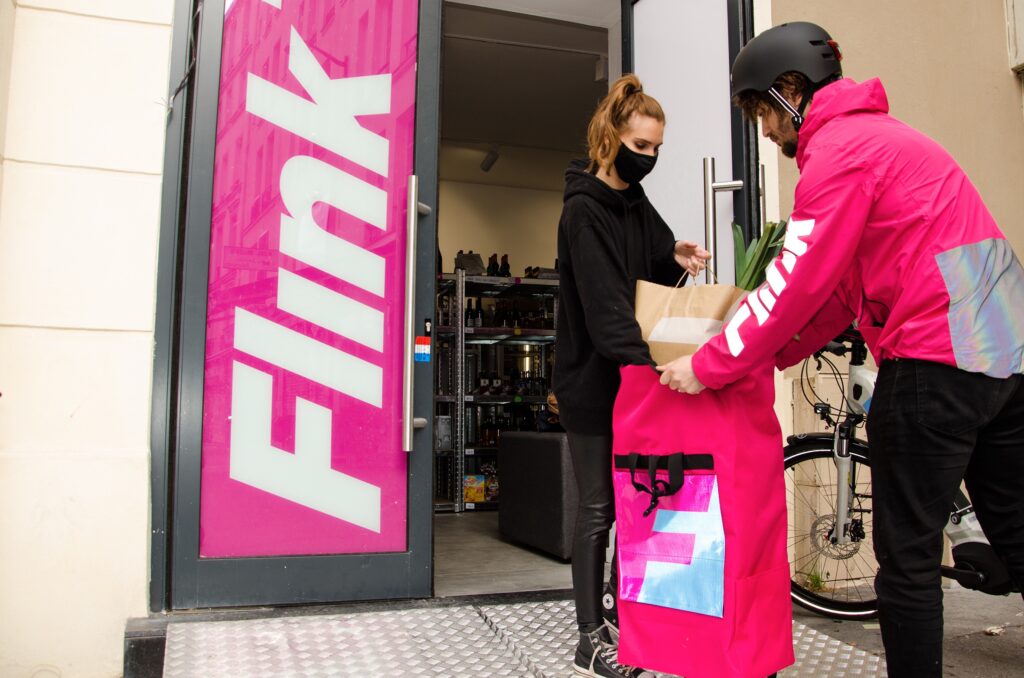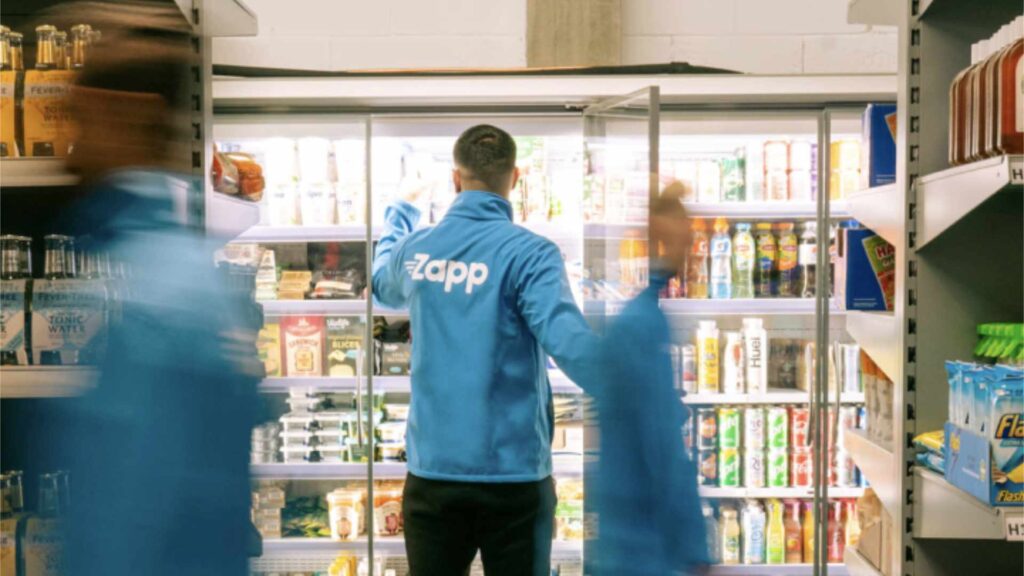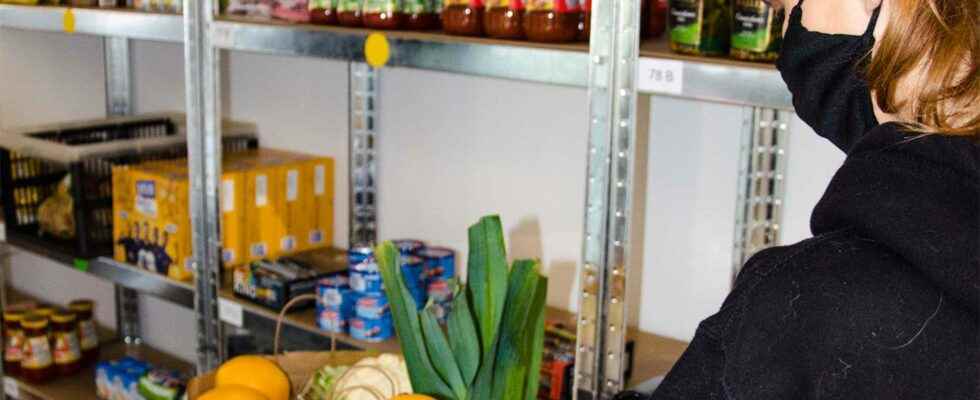Essential to the development of quick commerce, dark stores are settling in more and more city centers, to the chagrin of mayors and residents.
There are newcomers in the city centers of France: the dark stores. Where before there was a supermarket, a grocery store or a small convenience store, there are now premises with opaque windows, from which delivery people come out on bicycles or scooters at any time of the day and night, and where customers are not welcome.
Dark stores refer to warehouses or kitchens used by delivery companies. Hot meals are prepared there for delivery apps like Deliveroo or Uber Eats, but also classic shopping orders, for quick commerce apps, like Gorillas or Flink. Dark stores are more than just collection points: they are the nerve centers of these companies, the places on which their business model rests.
What is a dark store?
Concretely, dark stores are built like a kind of supermarket, with the difference that they do not welcome customers. Inside, there are only order pickers, and a place where delivery people can pick up orders and sometimes rest. It is also the place where bicycles and scooters used for deliveries are stored.
But, customers never see any of that. The latter go through an app to place their orders, before being delivered. They never need to go there, and they generally don’t know where the delivery people are leaving from. From the outside, you can’t really know what’s going on inside. Showcases and windows are clouded and flocked with brand logos, and signs at the entrance level generally indicate that the store is not welcoming any customers.

As for dark kitchens, the situation is broadly the same. These establishments only work with meal delivery platforms, such as Deliveroo and Uber Eats. These are sometimes the secondary addresses of restaurant chains that are already well known to the public. These dark kitchens, unlike other establishments, are not intended to welcome customers. Inside, there are only cooks who prepare the orders they receive on the apps.
These are usually much smaller premises than those of dark stores: only a few worktops and stoves are needed for the cooks. No need to store everyday consumer products. Similarly, there is no space specifically for delivery people: they just pick up the bags before leaving.
Mayors and residents oppose their installation
In order to be profitable, dark stores and dark kitchens must be installed in places with a high population density to reach as many customers as possible — couriers stay within a certain perimeter defined in advance, to make deliveries as quickly as possible.
The challenge for companies is to find central locations – it is therefore generally near city centers or in the busiest shopping streets that they wish to set up. And, it is this point that disturbs. Paris is the French city most affected by the phenomenon (there are more than 80 dark stores in the capital and its suburbs), but it is not the only one: Lille, Toulouse, Nice, Marseille and other large cities are also affected.

Local elected officials, neighborhood vendors and residents are mostly unfavorable to the installation of dark stores. Already, most are doing it illegally, because warehouses cannot set up shop everywhere they want. Mayors and merchants are equally hostile to them: the latter believe that quick trade companies represent unfair competition, and city officials are afraid that they will cause the closure of neighborhood businesses, already undermined by supermarkets.
Finally, the inhabitants complain about the activity that happens with the dark stores: fleets of delivery men, sometimes on scooters, parade all day long in front of their homes, which regularly causes commotions and creates noise pollution. Not to mention the fact that the warehouses are open every day, even on Sundays, and that they are active very early in the morning and until late at night.
If they are currently illegal, which allows town halls to have a way to fight against their establishment, a government project could change things. A draft decree, filed in July 2022 and discovered in August by one of the deputies to the town hall of Paris, proposes to change the current regulation. In its current form, the decree would treat dark stores as businesses, not warehouses — making it very easy for companies to set them up wherever they want.
For the moment however, the text is not finalized and the contributions of the cities are welcome, indicated several members of the government. However, the mayors are worried, and openly oppose this idea. Toulouse has even proposed a “zero dark store” rule – it remains to be seen whether it can really be applied.
